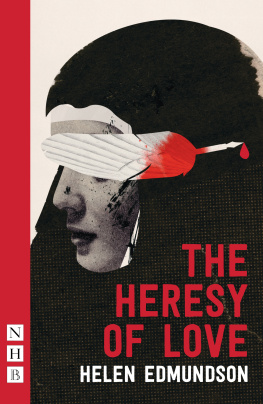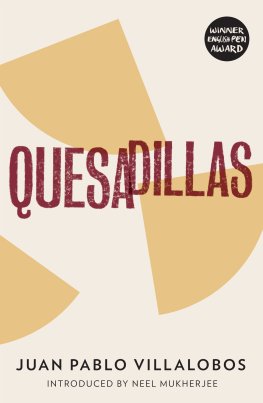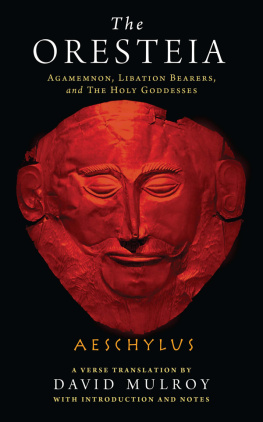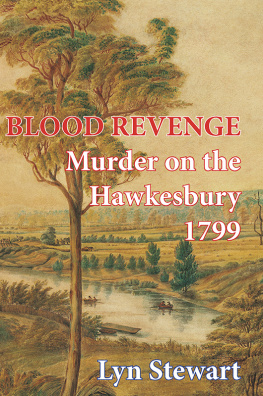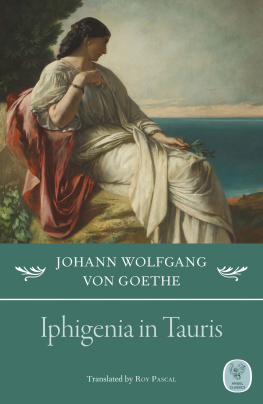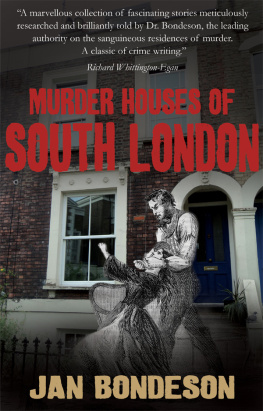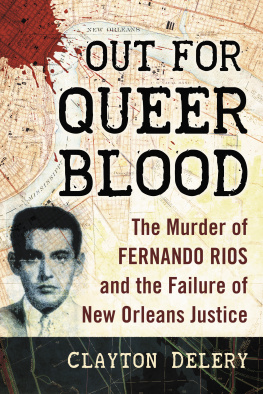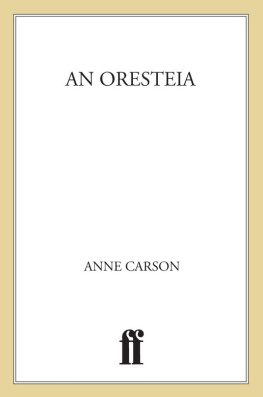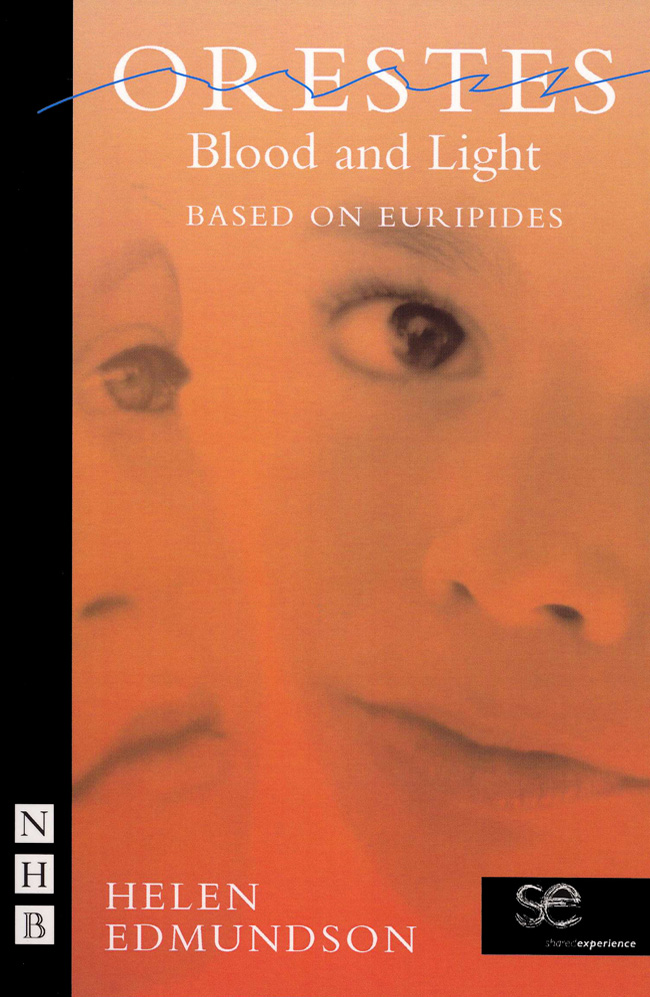Helen Edmundson
ORESTES
BLOOD AND LIGHT
Based on
Euripides

NICK HERN BOOKS
London
www.nickhernbooks.co.uk
Contents
This version of Orestes was first performed by Shared Experience Theatre Company at the Yvonne Arnaud Theatre, Guildford, on 14 September 2006; and subsequently at Dublin Theatre Festival; Warwick Arts Centre; The Lowry, Salford; Liverpool Playhouse; Oxford Playhouse; and Tricycle Theatre, London. The cast was as follows:
| MENELAOS | Tim Chipping |
| TYNDAREOS | Jeffery Kissoon |
| ELECTRA | Mairead McKinley |
| HELEN | Clara Onyemere |
| SLAVE | Claire Prempeh |
| ORESTES | Alex Robertson |
| Director | Nancy Meckler |
| Designer | Niki Turner |
| Lighting Designer | Peter Harrison |
| Composer | Peter Salem |
| Company Movement | Liz Ranken |
Foreword
When Nancy Meckler first gave me Euripides version of Orestes to read, I was puzzled by it. It is structurally flawed and tonally inconsistent. Although classed as a tragedy, its ending, in which a god descends and puts everything to rights, is a happy, if hollow, one. For these reasons it is rarely performed and often over-looked in discussions of his work, but the ideas contained within it are fascinating. The more we talked, the more I understood why Nancy was drawn to it. I understood the sad and frightening number of ways in which it is relevant to the current state of the world. When I began writing I was thinking as much about George Bush disregarding the views of the UN, and Tony Blair praying to God for guidance before invading Iraq, as I was about suicide bombers and religious extremists. I was thinking as much about honour killings amongst religious communities as about the loss of faith in the integrity of government and the impartiality of law.
As I wrote, I found the story allowed me to go even further. The way the characters use religion to justify their actions opened up into questions about the very nature of faith and the complex relationship between Man and his Gods, whilst Electras damaged, desperate heart speaks volumes about the personal, deep-rooted pain that underlies so many acts of violence, both on small and large scales.
I confess I have played fast and loose with the conventions of Greek theatre and with Euripides version of the story. I have abandoned the Chorus (who is not active or influential in the Euripides) in favour of the more subtle witness of the Slave. I have cut the character of Pylades to allow Electra her full role in the story and to allow myself to explore the extremities of her relationship with her brother. I have given Helen an intelligent, probing mind and allowed her and Klytemnestra some defence. I have chosen not to emulate the verse structure and metres of Euripides text, but to try to create a rhythmic, heightened language of my own.
In short, I have followed my instincts. I have kept what is useful to me and lost what is not in the hope of creating a drama which can speak freely, freshly and vitally to audiences today.
Helen Edmundson
Characters
ELECTRA
ORESTES
HELEN
SLAVE
MENELAOS
TYNDAREOS
SOLDIERS
ATTENDANTS
A forward slash (/) in the dialogue indicates that the next character begins speaking at that point. If the forward slash appears at the end of a characters line of dialogue, it indicates that the character continues their next line of dialogue without a break.
In Klytemnestras bedroom in Agamemnons palace. It is an ostentatious room, full of clothes and pairs of shoes, full of the gold-plated trappings of wealth.
ELECTRA is sitting at the dressing table. She is wearing one of her mothers dresses over the top of her own clothes.
ORESTES is on the bed, asleep.
ELECTRA. Sometimes she would let me stay while she undressed. Sometimes she would send the servants away and she would sit here while I brushed her hair. My mother. She would let me open jars and bottles, sniff and touch, she would let me uncover close things from drawers, treasures, and tell me where they came from. Tell me stories of a life before. Sometimes she would hold out her hands for me and I would rub them with oil, taking the rings off, one by one, feeling the deep lines on her knuckles, shifting her skin, gently, over veins and bone.
I wanted to climb back inside her, always, and settle down behind her heart.
The best day... the best day was when my father came home triumphant in wine and pride and said he had betrothed me to a prince, though I was only six years old, Prince Kastor of Sparta, a demigod, a god to be. That day I was the centre of my mothers eye. She dressed me as a princess, put colour on my lips and cheeks, a golden crown upon my head. And my father lifted me up on his shoulders, a horse for a virgin-bride, and staggered me around the room, cornering and swaying, laughing loud while my mother played the easy, adoring people.
And that night I crawled into bed beside my mother, that bed, and when my father came he didnt tip me out but let me stay. And I crept down and down, burrowing between them, smelling in the mattress and the sheets all their nights of passion and sweat, good dreams and bad, our warmth all mingling together.
He was naked when she killed him. Naked in his bath, his home bath, his safe bath. Naked. His muscles releasing their memories of battle and rough seas. They netted him my mother and her lover Aigisthos they caught him round with cord, with rope. He stood, too late. He struggled, twisted, they brought him down, crashing to his knees, arms pressed against his sides like giant, folded wings. He moaned, roared, spat, they swung the axe and split his skull, they swung again, they hacked his chest until it cracked, they axed and axed until his moving, twitching stopped and blood lapped the sides of the bath with a steady, slowing rhythm. My father.
Someone had to see. It was right that it should be me. Right for my father, right for him (She indicates the sleeping ORESTES.) so that I could tell him, perfectly, what she had done. I didnt need to fable it, tell how she danced and sang while he lay dying, wound garlands through her hair. I could tell him how she sagged and felt for the floor, vomiting and shaking. I could tell him how Aigisthos stood so still and Time gaped, gasped. Time gasped.
If I hadnt seen it, we might have balked at what we had to do. My brother and I. Orestes.
Beyond the doors, footsteps and noises are heard. ELECTRA springs up, terrified.
No. No. Whos there? It isnt time yet. Leave us alone. Let my brother sleep. Let us have our last night. Whos there?
The doors open and HELEN enters with SOLDIERS in attendance. Also with her is a female SLAVE who is carrying HELENs baby daughter, HERMIONE.
ELECTRA stares in disbelief. HELEN stands still and takes in the scene.
HELEN. Do you recognise me?
ELECTRA. Yes.
HELEN. Speak my name.
ELECTRA. Helen. You are Helen, if you are real.
HELEN. I havent changed so much. Unlike you, Electra. You were a child when I left.
ELECTRA. Youre back.
HELEN. Sixteen years.
ELECTRA. Youre back.
HELEN. Yes. Im back.
ELECTRA. My uncle? Is he with you?
HELEN. Uncle Menelaos. Hell be here. Soon. He sent me on ahead under cover of darkness, to slip unseen through the city gates. He feared the people would be baying for my blood, poor souls who lost their sons to the war. But the people have scented fresh blood now.


